Advisors
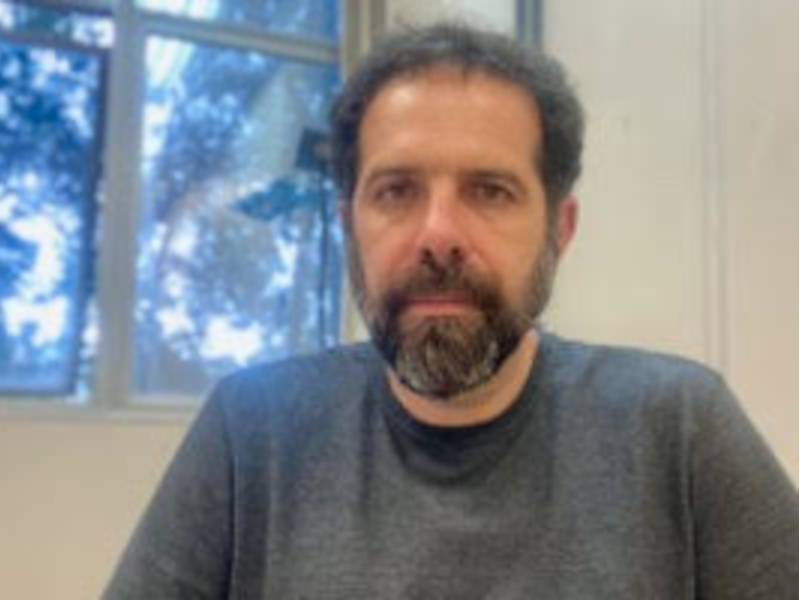
ADRIANO PINTER DOS SANTOS
He holds a degree in Veterinary Medicine and Animal Science from the University of São Paulo (2000), a Master's degree in Experimental Epidemiology Applied to Zoonoses from the University of São Paulo (2003), and a PhD in Experimental Epidemiology Applied to Zoonoses from the University of São Paulo (2007). He worked as a scientific researcher at the Superintendence of Endemic Diseases Control from 2006 to 2022 and at the Pasteur Institute of the São Paulo State Health Department from 2022 to 2024. He is currently an Associate Professor in the Department of Preventive Veterinary Medicine and Animal Health at the School of Veterinary Medicine and Animal Science at the University of São Paulo. He has experience in the fields of Parasitology and epidemiology of vector-borne diseases, with an emphasis on Brazilian spotted fever and yellow fever.
ADROALDO JOSÉ ZANELLA
Veterinarian, Associate Professor at FMVZ-USP, CNPq Research Productivity Fellow - Level 2. He is considered a world reference in animal welfare. He coordinated the AWIN animal welfare indicators project (https://cordis.europa.eu/project/id/266213/reporting ), funded by the European Commission, where the Animal Welfare Science Hub (https://animalwelfarehub.org/ ) was developed. In 2021, Prof. Adroaldo's laboratory organized an event celebrating “10 Years AWIN”, which included representatives from 11 institutions in nine countries. Prof. Adroaldo and some AWIN project participants were invited to join the Welfare Quality Network, (https://www.welfarequalitynetwork.net/en-us/home/ ), which represents the most influential organization in the world, where the protocols of the AWIN Project and the Welfare Quality Project, both funded by the European Union, are represented on a single platform. In 2023, the Center of Excellence in Ethics, Resilience and Sustainability - CERES was launched, whose activities today are represented by a partnership with the University of Oxford, mapping sustainability, animal welfare and biodiversity on beef cattle properties in the Amazon biome and the Cerrado. Prof. Adroaldo works in the following research areas: Impact of stress and disease on brain organization in different species; biomarkers of stress and animal welfare in various species; comparative welfare studies, with a focus on factors that improve the organization of systems in the brain to promote successful adjustment; the impact of disease on animal welfare; prenatal challenges and their effects on brain and developmental outcomes, including changes in behavioural, structural and genetic expression; relationship between pain and welfare in different animal species. He coordinates the Center for Comparative Studies in Health, Sustainability and Welfare (CECSBE - https://www.facebook.com/cecsbeusp); in the four-year period 2021-2014, CECSBE organized 130 seminars, held weekly, broadcast on facebook and youtube (https://www.youtube.com/@CECSBEUSP ) and attended by more than 1,500 people, always with the active participation of graduate students in the program.

ANA MÁRCIA DE SÁ GUIMARÃES
Veterinary Doctor from UFPR, Master in Experimental and Applied Epidemiology for Zoonoses from USP and PhD in Microbiology from Purdue University. CNPq Research Productivity Fellow - Level 2, PhD Professor at ICB-USP since August 2016, where she coordinates the Applied Research Laboratory for Mycobacteria (LaPAM - http://www.lapam.icb.usp.br ) and co-coordinates the Biosafety Level 3+ Laboratory (BSL3+, NB3+). Her line of research is tuberculosis in humans and animals, with projects that evaluate bacterial physiology and genomics, as well as the epidemiology of tuberculosis and the diagnosis of drug-resistant tuberculosis through genomics. She also works with biosafety of special pathogens and founded EPISaúde (www.episaude.org), a virtual platform to help health professionals correctly use personal protective equipment during the SARS-CoV-2 pandemic. He co-coordinates the Digital Health area of REDE-TB and is an associate member of the VALIDATE Network. Since 2019, she has also been an Adjunct Professor at the Department of Comparative Pathobiology, College of Veterinary Medicine, Purdue University (USA). She is a mentor and founder of the Biocientista Mirim Extension Project.
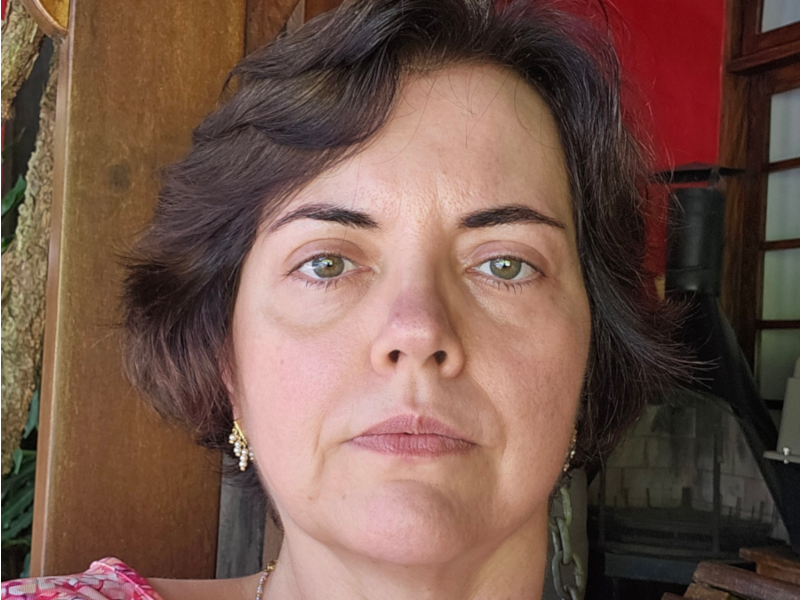
ANDREA MICKE MORENO
Veterinarian, Associate Professor at FMVZ-USP, CNPQ level 1C research productivity grant holder. She is currently President of the Postgraduate Committee at FMVZ-USP, Vice-Coordinator of this postgraduate program and President Director of the Veterinary Medicine Foundation since 2012. She is a member of (https://brcast.org.br/subcomite_de_veterinaria/). She carries out research activities in the areas of epidemiology, diagnosis and control of bacterial agents that cause diseases with an economic impact on the production of pigs and other animal species, molecular epidemiology of bacterial agents transmitted by food of animal origin, phenotypic and genotypic methods for monitoring resistance to antimicrobials in M. V. V.; impacts of the indiscriminate use of antimicrobials in M.V. - A One Health approach; rational use of antimicrobials in pig production; genetic sequencing and metagenomics applied to the study of bacterial populations of interest in veterinary medicine; identification of microorganisms of interest in veterinary medicine by MALDI-TOF MS. She frequently promotes technical training for teams in the area of health, antimicrobial resistance, development and registration of veterinary products, and training for MAPA technicians. The projects developed by the professor and her group have international partnerships with the Quadram Institute (UK), Ghent University (Belgium), Surrey University (UK), North Carolina State University (USA), University of Montreal (Canada), University of Fribourg (Switzerland). Partnerships with national institutions are maintained mainly with Companhia Ambiental do Estado de São Paulo (CETESB), EMBRAPA Gado de Leite, Associação Brasileira de Criadores de Suínos (ABCS), Faculdade de Medicina da USP, Instituto Adolfo Lutz, Universidade Federal do Rio de Janeiro, Universidade de Pelotas, Universidade Federal do Rio Grande do Sul and Universidade Federal de Alagoas. It has several research and development partnerships and receives funding from the private sector, including pig producers, pharmaceutical laboratories, feed manufacturers and research centers.
ANGELA SILVA BARBOSA
Graduated in Biological Sciences, Researcher at the Butantan Institute and CNPq Research Productivity Fellow, level 1D. Post-doctorate at INRA, Jouy en Josas, France (2000). Her scientific research focuses on the study of Leptospira interrogans membrane proteins involved in pathogen-host interaction.
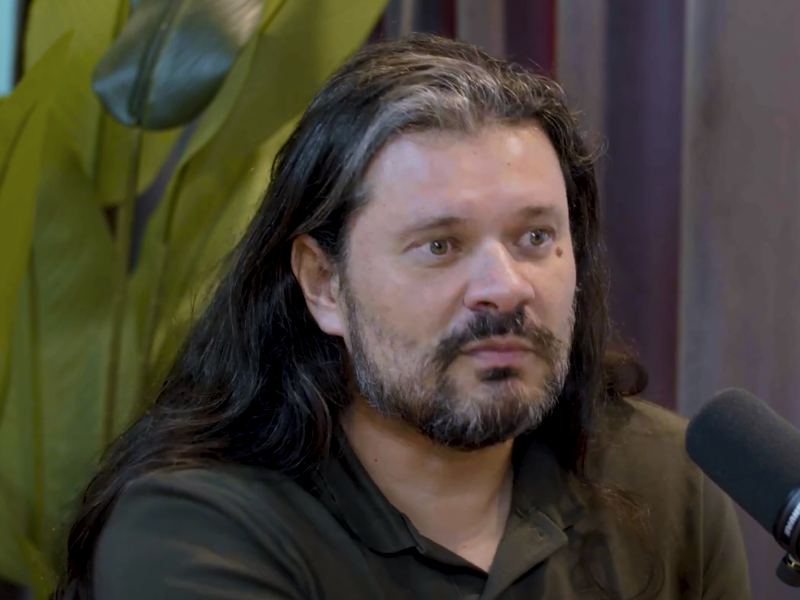
ARLEI MARCILI
Graduated in Biological Sciences, Professor at the University of Santo Amaro (UNISA) and CNPq research productivity grant holder, level 1C.
He conducted a FAPESP Young Researcher project at VPS-FMVZ-USP. His line of research focuses on the following themes: parasitic, infectious and zoonotic diseases with an emphasis on phylogeny, taxonomy and molecular diagnosis of parasites of the genus Trypanosoma and Leishmania.

DARCI MORAES BARROS BATTESTI
Graduated in Biological Sciences and CNPq Research Productivity Fellow, level 1B. She was a researcher IV at the Butantan Institute for 25 years and retired in 2017. Since then, she has worked as a Volunteer Professor in the Department of Pathology, Reproduction and Single Health at UNESP in Jaboticabal, SP, and as Assistant Scientific Editor of the Brazilian Journal of Veterinary Parasitology (CBPV). She has experience in the field of parasitology, with an emphasis on the taxonomy and biology of ticks and other ectoparasitic mites of wild animals. She also works in the areas of tick cell culture and tick cDNA libraries.

EVELISE OLIVEIRA TELLES
A veterinary doctor, she is a full professor and currently Deputy Head of Department (VPS) and Chair of the Advisory Committee of the Board for Integrated Health, Environment and Safety Management (GI-SAS/FMVZ-USP). He works in the areas of Food Hygiene and Inspection; Health Education; and Organizational Safety Culture (Health, Environment and Safety at Work) and Food Safety Culture. She has carried out extension projects with a great impact on the community, which have led to the publication of 2 books with the participation of undergraduates and 1 chapter of a technical-scientific book with the participation of a postgraduate student; all available online and free to access: Totó em: uma família para chamar de sua. DOI: https://doi.org/10.11606/9786587778099. Dialogues for the population management of dogs and cats. https://pedroejoaoeditores.com.br/produto/dialogos-para-o-manejo-populacional-de-caes-e-gatos/; Improving culture: the challenge of food safety. https://www.saude.sp.gov.br/instituto-de-saude/producao-editorial/temas-em-saude-coletiva.

FÁBIO GREGORI
A veterinarian with a degree in Pedagogy, he is a PhD Professor at FMVZ-USP. His research focuses on infectious diseases, virology, viral agents associated with enteritis (rotavirus, coronavirus, astrovirus, calicivirus, among others), the development and improvement of serological and molecular diagnostic methods and Veterinary Public Health Education. He is a technical advisor to USP's Postgraduate Dean's Office and a collaborating advisor to the Undergraduate Dean's Office, working to improve university teaching, and is responsible for a course at the Postgraduate Dean's Office - “DPG5004 Teaching in Higher Education: a first approach”. He plays an important role in our program and in other programs linked to FMVZ-USP by offering the subject VPS5717 - Pedagogical Preparation to all postgraduate students at the Unit. In addition, she coordinated the 2020/2021 Faculty Development Cycle, consisting of 3 face-to-face workshops, on 6 USP campuses, addressing the topics of Active Methodologies; Design Thinking and Use of digital tools in teaching, aimed at the University's decent staff. In addition to coordinating the workshop “Creating and publishing videos: your class in different times and spaces”, 2 of them were held on the campuses in 2021, with a total audience of more than 400 teachers.
FERNANDO FERREIRA
Veterinarian, master's and doctorate in Public Health, Epidemiology concentration, from the University of São Paulo, MBA in Data Science and Analytics from the University of São Paulo (2024) and undergraduate in Computer Engineering. Full Professor at FMVZ-USP, CNPQ level 1C research productivity grant holder. In recent years he has coordinated the postgraduate program and headed the Department and was General Coordinator of Prevention and Surveillance in Animal Health in the Department of Animal Health of the Secretariat of Agricultural Defense of the Ministry of Agriculture. His line of research has an emphasis on animal epidemiology, working mainly on the following topics: epidemiology, geoprocessing, GIS - Remote Sensing and mathematical modeling, structuring and evaluating risk-based surveillance systems for various diseases, as well as structuring systems for early detection of the introduction of diseases into free populations. Among the projects developed by the research group, his work as Coordinator of the AQUAEPI Network - of the former Ministry of Fisheries and Aquaculture, currently absorbed by the Ministry of Agriculture and Livestock (MAPA) - stands out. He works as a collaborator with the Ministry of Agriculture and Livestock, as a consultant in the area of epidemiology for various states, including Mato Grosso, Goiás and Espírito Santo. He coordinates the activities of the postgraduate students of the LEB - Laboratory of Epidemiology and Biostatistics (https://leb.fmvz.usp.br/pt-br), which holds lectures with guests and makes them available with various information about the area on the group's YouTube channel (https://www.youtube.com/user/lebvps).

HELENA LAGE FERREIRA
A veterinary doctor, she is an Associate Professor at FZEA-USP, with a CNPQ level 2 research productivity grant. She did a post-doctorate at Sciensano (formerly Veterinary Agrochemical Research Center, VAR) in Belgium (2007-2008) and worked as an Assistant Researcher at the same institute from 2008 to 2011. She was a visiting researcher at the USDA Southeast Poultry Research Laboratory (SEPRL-ARS) in Athens, Georgia. She has documented experience working in NB2, NB3 and NB3A biocontainment environments. Certified to operate in biosafety level 3 environments and procedures by Siensano and SEPRL-ARS-USDA, according to the standards and rules of the select agent program (CDC-USDA) and OIE. She was a member of the Poultry Health Program Committee of the Ministry of Agriculture, Livestock and Supply (MAPA), Brazil (2014-2020). Her line of research involves studies with viruses of importance to commercial poultry farming, wild animals and, in some cases, public health with a focus on continuous genomic surveillance, with a focus on identifying molecular markers for control strategies, development of diagnostic tests and more effective vaccines to mitigate zoonotic epizootics and pandemics.
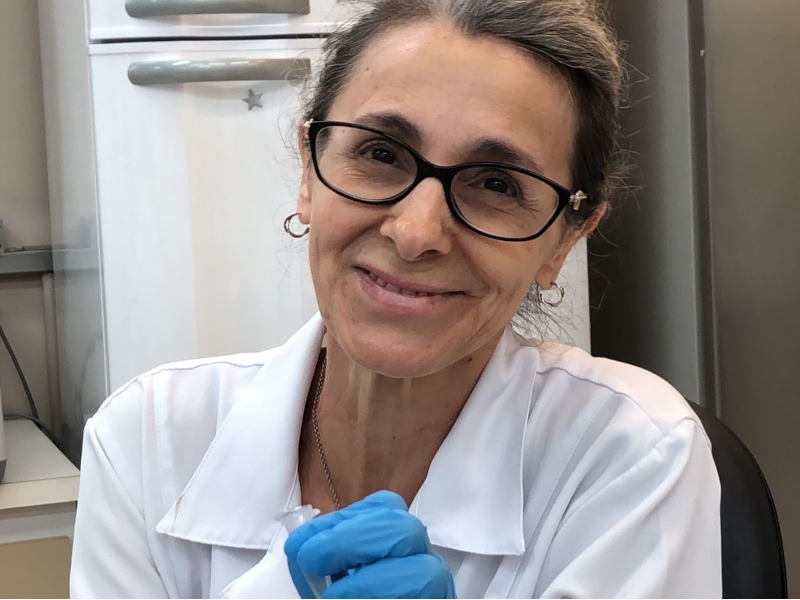
HILDA FÁTIMA DE JESUS PENA
Veterinarian, specialized senior technician at VPS-FMVZ-USP. She is responsible for managing the Parasitic Diseases laboratories and routine diagnostics in this sector. Her lines of research focus on Animal Parasitic Protozoology (epidemiology, isolation and molecular characterization): Toxoplasma gondii, Cryptosporidium, Neospora and Sarcocystis. She did a post-doc at VPS-FMVZ-USP (2016 to 2018) and has partnerships in several international institutions, such as University of Tennessee, Virginia Tech and USDA (USA); Université de Limoges (France) and Moredun Research Institute (Scotland).
JOSÉ HENRIQUE DE HILDEBRAND E GRISI FILHO
A veterinarian, he is an Associate Professor at FMVZ-USP, where he has been teaching since 2013. His line of research focuses on geographic information systems, complex networks, mathematical modeling, veterinary public health and animal health. He is currently an alternate representative of the VPS on the Undergraduate Committee, of the Professor Doctor category on the Congregation and responsible for the Pro-Student Room at FMVZ/USP. He was a visiting professor at the University of California Davis (USA), at the Center for Animal Disease Modelling and Surveillance, from 03/2023 to 02/2024. Collaborator: Prof. Beatriz Martinez-Lopez.

JOSÉ SOARES FERREIRA NETO
Veterinarian, Full Professor at FMVZ-USP, CNPQ level 1C research productivity grant holder. He was Head of the Department of Preventive Veterinary Medicine and Animal Health at the Faculty of Veterinary Medicine and Zootechny (FMVZ) at USP (1999 to 2003 and 2011 to 2015). He was Vice-Director (2016-2019) and Director of FMVZ USP (2019 to 2023). He is currently a Full Professor at FMVZ USP, scientific advisor to the Ministry of Agriculture and Livestock (MAPA) for various national programs and coordinator of the Collaborating Center for Animal Health. He is an ad hoc consultant for FAPESP, CNPq and several other funding institutions, as well as for numerous scientific journals. He is a researcher at the recently created (May 2023) Collaborating Centre for Economics of Animal Health in the Americas Region of the World Organization for Animal Health, which, in addition to researchers from USP (ESALQ and FMVZ), also includes researchers from UnB, the Universidad Nacional Autonoma de Mexico, Kansas State University and Washington State University. It works with Veterinary Epidemiology and Health Programs.
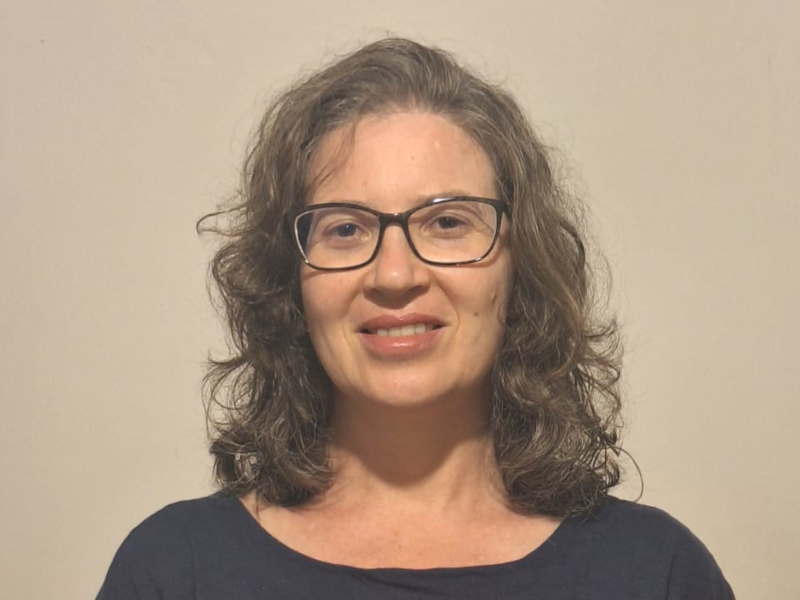
LARA BORGES KEID
Veterinarian, PhD Professor at FZEA-USP, CNPq research productivity grant holder, level 2. Full representative on the Veterinary Medicine Course Coordinating Committee (CoC-MV) at FZEA/USP (since October 2016). Full representative of the Professor Doctor category on the Board of the Department of Veterinary Medicine at FZEA-USP (since October 2020). Head representative of the Department of Veterinary Medicine on the Human Research Ethics Committee (CEPH) at FZEA/USP (since May 2021); Coordinator of the Large Group Laboratory Commission at FZEA, USP (since February 2022). Her line of research involves the following topics: epidemiology and control of infectious diseases in domestic and wild animals, including health studies in aquatic mammals, development and improvement of laboratory resources for the diagnosis of transmissible animal diseases. The main diseases covered are: bacterial zoonoses, especially brucellosis, and morbillivirus infections in animals.
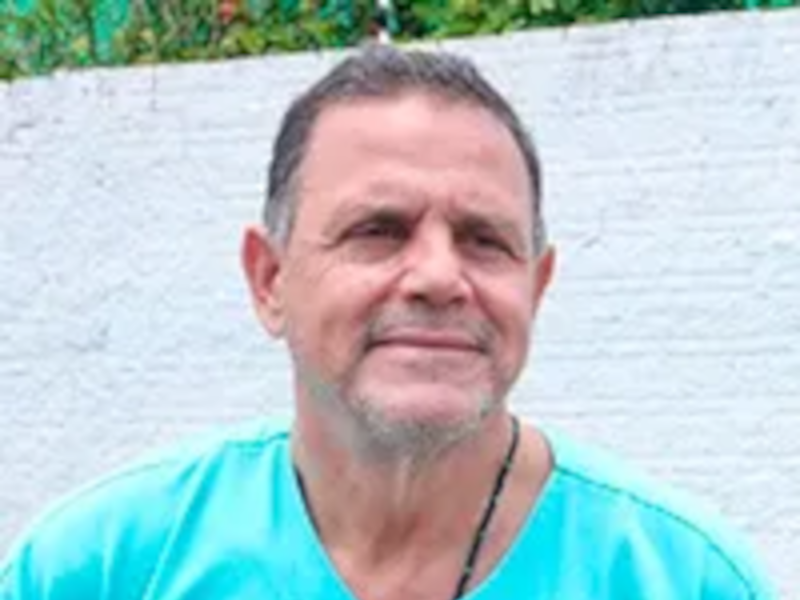
LUIS MARCELO ARANHA CAMARGO
Physician and professor in the Department of Parasitology at USP's Institute of Biomedical Sciences (ICB). The accreditation of Prof. Luís Marcelo as a full advisor took place on 29/09/2022, a fact considered extremely relevant, since the professor has been, since 1997, the coordinator of the Advanced Research Center of ICB/USP, located in Monte Negro, Rondônia (https://sites.usp.br/bmp/laboratorios-de-campo-rondonia-2/). This center has a diverse research infrastructure focused on epidemiology and health projects unique to the Western Amazon, so that several research projects have already been carried out in collaboration with the VPS/FMVZ/USP. Without a doubt, the accreditation of Prof. Luís Marcelo to our program will have a significant impact in the next four years, allowing for greater participation of professors and graduate students in teaching, research and extension activities in the Western Amazon. In 2022, Prof. Luís Marcelo was awarded first place in the “Outstanding Researcher” category of the FAPERO CT&I-RO “Prof. Dr. Wilson Veneziano” Award by the Foundation for the Support of the Development of Scientific and Technological Actions and Research in the State of Rondônia (FAPERO), which aims to recognize the work of professionals for the development of science. Also in 2022, he received the William Harvey Commendation from the CRM-RO, for 37 years of dedication to medicine and 32 years of dedication to RO, and received the Commendation from the Legislative Assembly of the State of Rondônia, for services rendered to the state.
The professor's lines of research are based on vector-borne diseases in the Amazon biome, with an emphasis on vulnerable populations such as riverine dwellers and residents of rural settlements and the outskirts of cities.
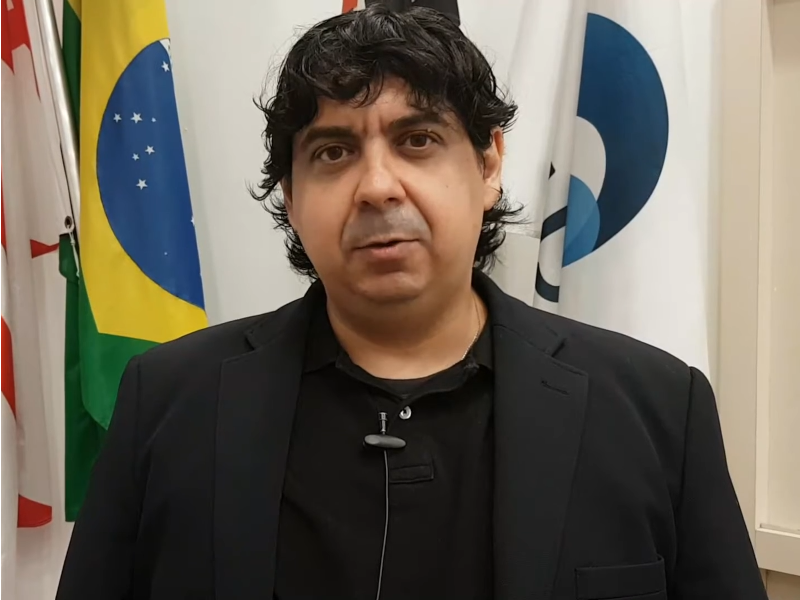
LUIZ GUSTAVO BENTIM GOES
He has a degree in Biological Sciences and is currently a Researcher at the Institut Pasteur in São Paulo, SP. He was recently accredited as a collaborating professor on October 24, 2024. He completed his PhD in Biotechnology in 2012 at the University of São Paulo (USP), with a sandwich period at the University of Colorado (USA), where he studied the molecular epidemiology of human coronaviruses in respiratory diseases in Brazil, as well as research on the identification of the Spike protein binding site with human coronavirus cell receptors, and the genetic diversity of coronaviruses in Latin American bats. Recently, he has been working on projects related to the eco-epidemiology and evolution of respiratory viruses (including Coronavirus, Paramyxovirus, Influenza, Hantavirus, Arenavirus) from humans, bats and rodents in Brazil, in collaboration with institutions in the UK (Animal and Plant Health Agency) and Germany (Institute of Virology at the CHARITÉ Medical University in Berlin). He is currently a Young Researcher at the Institut Pasteur in São Paulo, coordinating the Laboratory of Eco-epidemiology, diversity and evolution of emerging viruses.
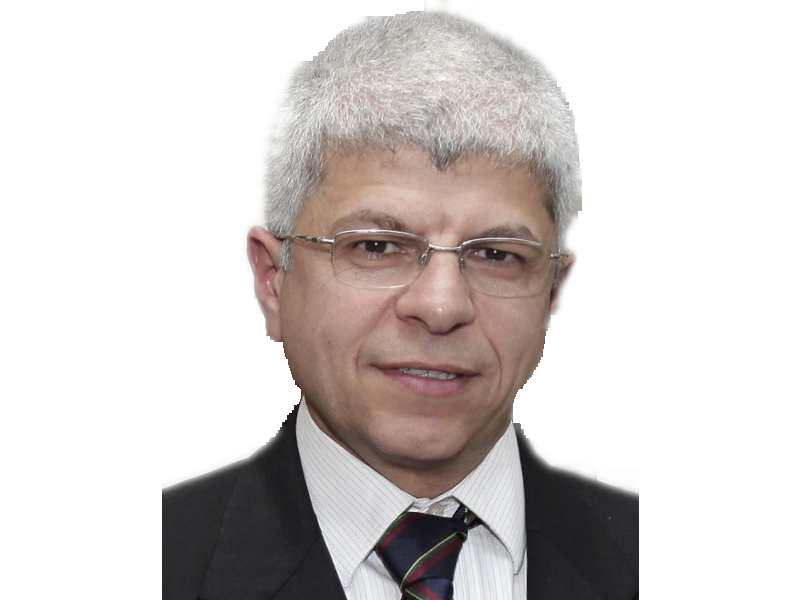
MARCELO BAHIA LABRUNA
Veterinarian, Full Professor at FMVZ-USP, CNPQ level 1A research productivity grant holder and current Coordinator of the Epidemiology and Single Health Program.
In 2022, he was listed among the most influential USP researchers in world science, according to a ranking by the Scopus database (https://jornal.usp.br/institucional/247-pesquisadores-da-usp-estao-entre-os-mais-influentes-da-ciencia-mundial/). In 2024, he was ranked fourth in a worldwide ranking (Highly Ranked Scholar by ScholarGPS) of researchers, for his scientific production in the area of “Tick-Borne Disease” (https://scholargps.com/highly-ranked-scholars?year=2024&specialty=Tick-borne+disease#4 ). In 2023, he received the “ASTMH Distinguished International Fellow” medal from the American Society of Tropical Medicine & Hygiene for his significant contributions (https://www.astmh.org/awards-fellowships-medals/honorary-members ), for his relevant scientific contributions in the field of tropical medicine/global health throughout his career.
The professor's lines of research focus on parasitic diseases of animals, with an emphasis on the following topics: tick systematics, biology and ecology and tick-borne diseases. Within these lines, he has participated in several research projects in partnership with researchers from the United States, Spain, Mexico, Nicaragua, El Salvador, Panama, Colombia, Chile, Argentina and Uruguay, as evidenced by his scientific publications in the last four years. He has been accredited as the main supervisor of a PhD student at the Faculty of Agronomic Sciences of the University of El Salvador (2021-2024) and participated in the “Chemical and Vaccine Control Guidelines for Vaccine Ticks in Latin America” Network (project number 118RT0542) of the Ibero-American Science and Technology for Development Program (CYTED, 2018-2022 - https://www.cyted.org/lagar).
He has been President of the “Ethics Committee on the Use of Animals” (CEUA) at FMVZ/USP since 2020; a full member of the “State Reference Committee on Communicable Diseases” of the São Paulo State Health Department, since 02/01/2020; a full member of the “Permanent Technical Commission for the Prevention and Control of Brazilian Spotted Fever” of the USP Luiz de Queiroz Campus, since 22/06/2018.
He is an advisor to the Health Secretariats of the Municipality and State of São Paulo and the Ministry of Health on actions related to the control of vector-borne diseases, especially ticks. He is a founding member of the “Sociedad de Investigadores de Antricola” (SIA), which was founded in 2009 to coordinate joint research into argasid ticks among professionals in Brazil.

MARCOS AMAKU
He holds a bachelor's degree in Physics and is currently an Associate Professor at USP's School of Medicine. He has a CNPq research productivity grant, level 1C. He has experience in the area of public health, with an emphasis on mathematical epidemiology, working mainly on the following topics: epidemiology - mathematical models. The professor stands out for making and coordinating mathematical models in various health-disease models, as evidenced by several of his scientific publications in the four-year period.
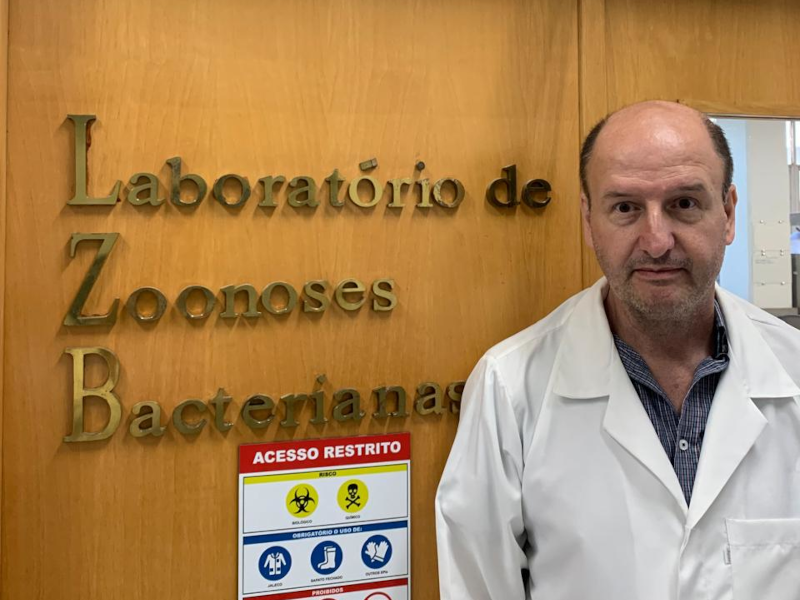
MARCOS BRYAN HEINEMANN
Veterinarian, Associate Professor at FMVZ-USP, CNPQ research productivity grant holder level 1B and currently Head of Department (VPS) (2023-2025), he was deputy head of department between 2021-2023. A graduate of this program, where he did his master's (1995) and doctorate (2000), he was an adjunct professor at UFMG (2006-2014) before being hired at FMVZ-USP. He was Coordinator of this Program until September 2020, and is a member of the Advisory Committee of the FMVZ/Health Surveillance Board. He is a member of BrCAST - Brazilian Committee on Antimicrobial Susceptibility Testing - Veterinary Subcommittee (https://brcast.org.br/subcomite_de_veterinaria/). He is a reviewer for the international program BARD Binational Agricultural Research and Development Fund US-Israel (2022) (https://www.bard-isus. com/), reviewer for the ACIP program (Actions Concertées InterPasteuriennes, 2021) at the Institut Pasteur, France, coordinated by the Service de la Programmation et des Actions Incitatives Scientifiques (SPAIS) / Department for Scientific Programming and Incentive Actions Direction Internationale / Department of International Affairs, Institut Pasteur, and Coordinator of the “Light, Camera and Science” scientific outreach and teaching project (https://www.youtube.com/channel/UCgGFjh4Js4U6FTkhnKRie2g).
The professor's line of research focuses on the following themes: infectious animal diseases, working mainly with animal leptospirosis, animal tuberculosis, zoonotic staphylococcosis and bovine mastitis.
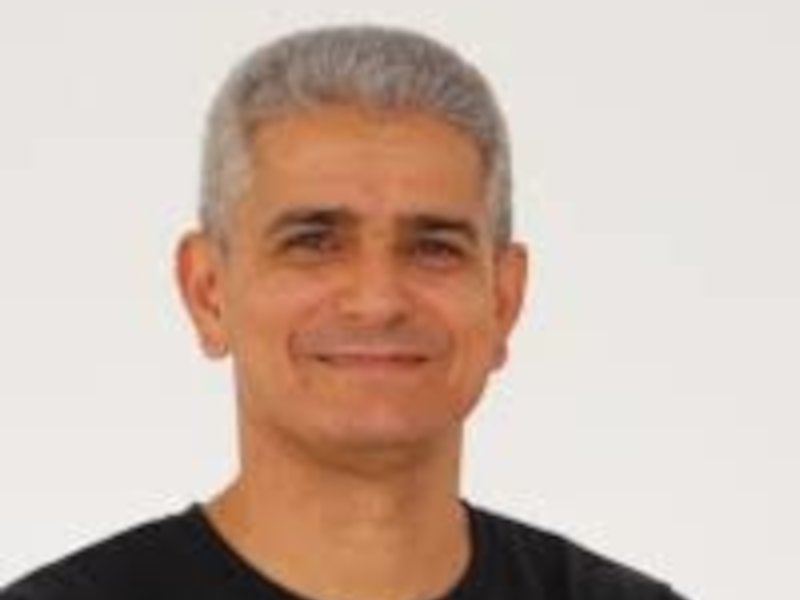
MARCOS VEIGA DOS SANTOS
He is a veterinarian graduated from FMVZ-USP and completed his Ph.D. in Food Science at the University of São Paulo in 2001. Currently, he is a Full Professor in the Department of Animal Nutrition and Production (VNP) and Vice-director of FMVZ-USP. He has published 163 articles in scientific journals and 3 books. He has supervised 31 master’s theses, 7 doctoral dissertations, and 4 postdoctoral projects in the field of Veterinary Medicine. He is a CNPq Research Productivity Fellow in Modality 1-C and a member of the Editorial Board of the Brazilian Journal of Veterinary Research and Animal Science as the Editor for the Animal Nutrition and Production area. He is currently the coordinator of the Qualileite Laboratory (www.qualileite.org) and a columnist for the Milkpoint Portal (www.milkpoint.com.br).

MARTA DE OLIVEIRA DOMINGOS
She holds a degree in Biological Sciences from Universidade Presbiteriana Mackenzie, a master's degree in Immunology from the University of São Paulo, a Ph.D. from the University of London, postdoctoral training at St George's Medical School (London), and postdoctoral research at the Bacteriology Laboratory of the Butantan Institute. She has experience in the areas of microbiology and immunology, mainly focusing on the following topics: adjuvants, oral and conjugated vaccines against enteric pathogens, and antimicrobial agents. She is a Scientific Researcher at Level VI at the Bacteriology Laboratory of the Butantan Institute. She supervises students in the Toxinology Graduate Program at the Butantan Institute. She is responsible for the course "Application of Immunobiologicals and Microorganism Derivatives to Biotechnology" (BTC-5787-1) in the Interunit Graduate Program in Biotechnology (USP-IBU-IPT) and the course "Use of Toxins and Bacterial Derivatives in the Development of Biotechnological Products" in the Toxinology Graduate Program at the Butantan Institute. She also coordinates the extension course "Importance of Vaccines and Epidemiological Control in the Prevention of Infectious Diseases" at the Butantan Institute's Higher School.
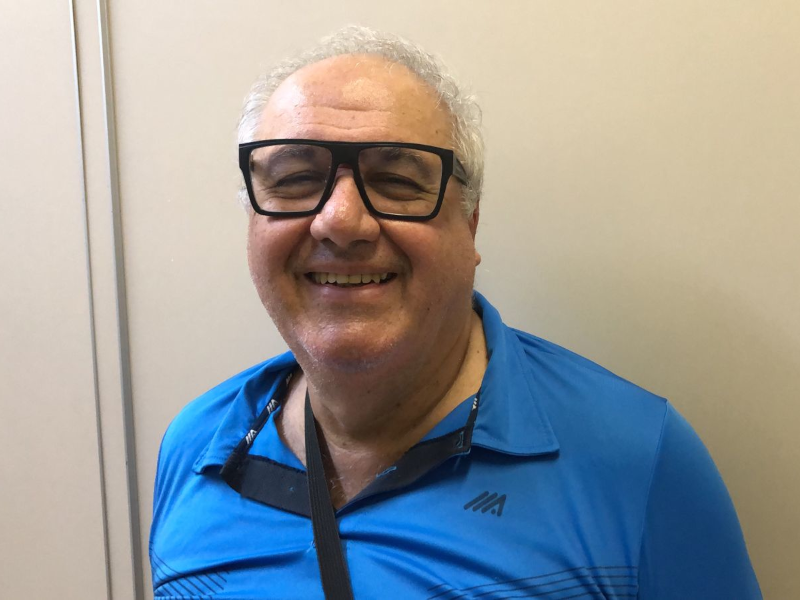
NILSON ROBERTI BENITES
He is a Veterinarian and Full Professor at FMVZ-USP. He is currently the President of the Library Committee at FMVZ/USP and a Representative on the Hospital Council at FMVZ/USP. He is a member of the Congregation of FMVZ and the Council of the Department of Preventive Veterinary Medicine and Animal Health at FMVZ-USP. His research focuses on infectious diseases in animals caused by bacterial agents, fungi, and homeopathy. He is a national reference in the field of veterinary homeopathy, being responsible for the homeopathy service at the Veterinary Hospital (HOVET) of FMVZ/USP.
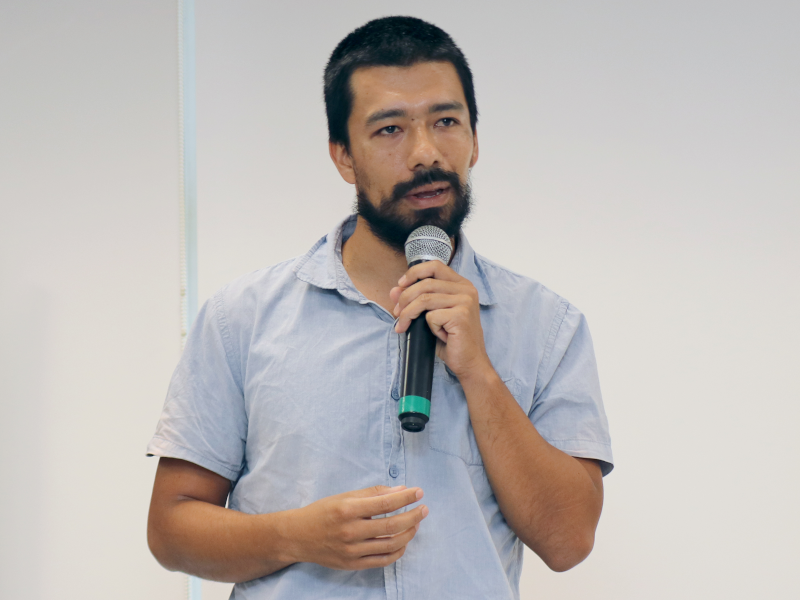
OSWALDO SANTOS BAQUERO
He holds a degree in Veterinary Medicine from the National University of Colombia, a Ph.D. in Epidemiology from the University of São Paulo (USP), a postdoctoral degree in Public Health (USP), and a specialization in Data Science from Johns Hopkins University. He is a Full Professor at USP, affiliated with the Department of Preventive Veterinary Medicine and Animal Health at the Faculty of Veterinary Medicine and Animal Science (VPS-FMVZ) and the Research Group on Peripheries at the Institute of Advanced Studies (nPeriferias-IEA). He coordinates the Multispecies Health Network (Rede SAME) at USP, dedicated to the (re)production of well-being for marginalized multispecies collectives (https://redesame.fmvz.usp.br). His work focuses on decolonial perspectives, biopolitics, political ecology, and social studies of science and technology. His main areas of expertise are: One Health in symbolic and geographic peripheries, collective health, epidemiology, animal population management, Bayesian modeling, mathematical modeling, and machine learning. He received the Antonio Carini Award from the Pasteur Institute, First Place for the work "Size, Distribution, and Rabies Vaccination Coverage of the Population of Domestic Dogs in Brazil." He also received first place with the project "One Health in Peripheries" in the 1st "Solidary Learning - Experiences that Transform" Award, due to his pedagogical innovation and contributions to a more just multispecies society.
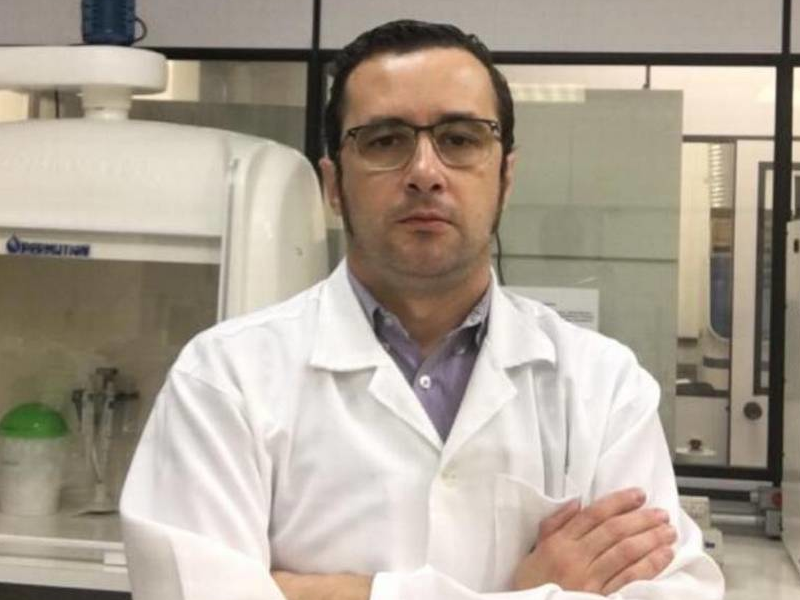
PAULO EDUARDO BRANDÃO
He is a Veterinarian, Associate Professor at FMVZ-USP, and a CNPq Research Productivity Fellow at Level 1C. He works in Virology, with an interest in developing antivirals against the rabies virus. He is a member of the Technical Advisory Chamber on RABIES (CTA-Raiva) of the Ministry of Health. He is also associated with the Rabies Diagnosis Laboratory Network (MAPA and the Ministry of Health). Since September 2020, he has been writing the monthly column "Virosfera" in the magazine Veja Saúde by Editora Abril: https://saude.abril.com.br/coluna/virosfera.
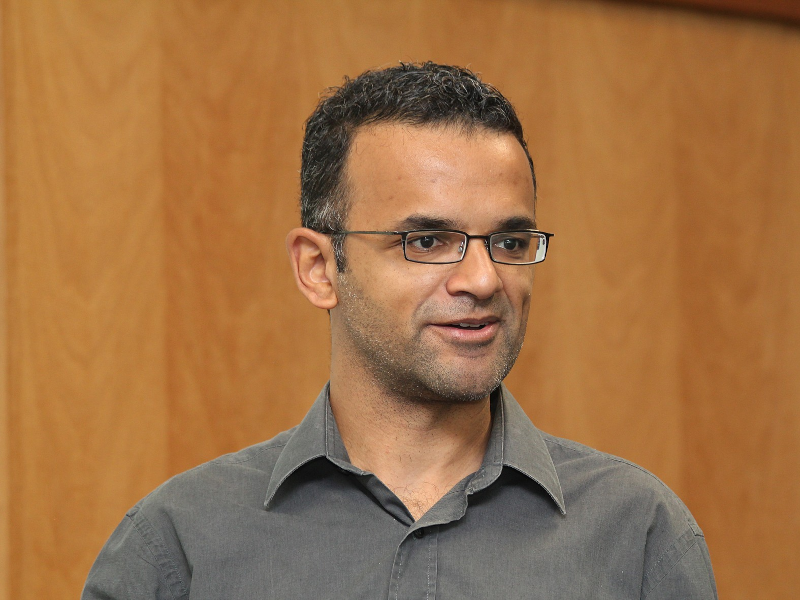
RICARDO AUGUSTO DIAS
He is a Veterinarian and Associate Professor at FMVZ-USP. He participated in the Technical Cooperation Project BRA/IICA/13/004 – Agricultural Defense System – Ministry of Agriculture, Livestock, and Food Supply (MAPA), evaluating the results achieved and proposing indicators over the last 10 years for the National Program for the Control of Rabies in Herbivores (PNCRH). He collaborates in the development of public policies at the federal level, with MAPA and the Ministry of the Environment, as well as at the state and municipal levels. He has worked on projects related to the control and eradication of invasive species on oceanic islands, such as the Trindade and Martim Vaz archipelagos and Fernando de Noronha, in partnership with the Brazilian Navy, ICMBio, and WWF. He has also conducted movement ecology studies on dogs in canid guilds in the Cerrado, as well as on bats, to provide scientific bases for rabies control and harmonious coexistence with these species. He works on consolidating cooperation networks in national and continental biorepositories for the surveillance of emerging pathogens that threaten biodiversity. In 2024, he created the National Biorepository of Biodiversity (BIONABIO), which involves an extensive collaboration network with various partners (federal and state wildlife managers, zoos, biological and zoological collections, wildlife rescue and rehabilitation centers, field researchers, wildlife services, and public health managers) to promote the surveillance of emerging pathogens in Brazilian wildlife.

RODRIGO MARTINS SOARES
He is a Veterinarian, Associate Professor at FMVZ-USP, and a CNPq Research Productivity Fellow, Level 2. He is responsible for the VPS facilities on the Pirassununga campus. His research focuses on the following topics: Molecular Epidemiology of diseases caused by protozoa: toxoplasmosis, neosporosis, leishmaniasis, sarcocystosis, cryptosporidiosis, and giardiasis. Development and Improvement of Molecular Methods for the Direct Diagnosis of Animal Transmissible Diseases.

SIMONE CARVALHO BALIAN
Veterinarian - Associate Professor at FMVZ-USP. Full member of the University of São Paulo Residency Council - COREMU USP and President of the Veterinary Medicine Residency Council and Representative on the FMVZ/USP Human Resources Commission. Vice-President of the Commission for Inclusion and Belonging (CIP) at FMVZ/USP. He develops scientific research focused on the inspection and quality of fish; the health of aquatic organisms and instrumentation for the development of Food Safety Culture in organizations.

TRÍCIA MARIA FERREIRA DE SOUSA OLIVEIRA
She is a CNPq Research Productivity Fellow, Level 2. She is an Associate Professor in the Veterinary Medicine program at the Faculty of Animal Science and Food Engineering (FZEA) at the University of São Paulo (USP), having served as the course coordinator from 2016 to 2020. She holds a degree in Veterinary Medicine from the Federal University of Lavras (UFLA), completed in 2002, a master's degree in Animal Pathology (2004), and a Ph.D. in Preventive Veterinary Medicine (2008), both from the Faculty of Agricultural and Veterinary Sciences at the São Paulo State University Júlio de Mesquita Filho (FCAV-Unesp, Jaboticabal). In 2021, she obtained the title of Livre-Docência in Parasitic Diseases from USP. Her work focuses on the study of parasitic and infectious diseases that affect domestic animals, with an emphasis on epidemiology, diagnosis, and control.







